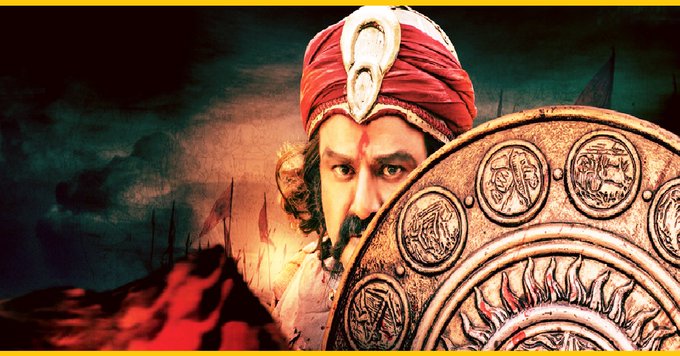Today we will tell you the story of an Indian King, whose deeds are often misunderstood, and his contribution towards Indian culture, history, and religion are not known to the masses.
Yes, we are talking about one of the greatest kings of India, Pushyamitra Shunga. He was the commander-in-chief of King Brihadratha’s army. He was known for his strong belief in Vedic rituals and methods, he was a devout Brahmin.
He was known for expressing his displeasure against King Brihadratha, as his way of ruling was not considered a pious one. King Brihadratha was known for his undeclared policy of appeasement of Buddhists. It is said that King Brihadratha’s immature rule and continuous appeasement and inaction of the Magadha led to the separation of several provinces from the kingdom, but it also led to multiple military campaigns by foreign invaders.
Here it is important to note that King Chandragupta and King vanquished many adversaries and foreign invaders including Macedonians, due to fear of Gupta Kings, nobody dared to enter the Indian subcontinent for many decades.
The Macedonians were marching against different Indian states including the Magadha empire, and they were supported by few Indo-Greek kings, who were followers of Buddhism, and that was the primary reason behind the lenient attitude of the king of Magadha Brihadratha, who was not showing any sort of resistance against these foreign invaders.
Pushyamitra was extremely frustrated by the lethargic attitude of king Brihadratha, he was aghast by the decline of the Vedic culture and favoritism of Buddhism above Vedic beliefs.
When Brihadratha got the news of foreign invaders, he was casual about it and left everything on time. He didn’t take any necessary steps to prevent the Greek invasions.
Pushyamitra and his Army started believing that Brihadratha is not fit to rule. Angered Pushyamitra Sunga went against the order of the king. He attacked the Buddhists and captured 300 Greeks from there. He beheaded each of them and captured the Buddhists and brought them before Brihadratha, but instead of applauding him, he banished Pushyamitra from his court. Then Pushyamitra Sunga and Brihadratha got into some heated argument , in which Brihadratha attacked Pushyamitra and in return Pushyamita killed him.
Pushyamitra declared himself the king, he got massive support of his army and he established a mighty Shunga Empire. Soon after ascending the throne, Pushyamitra started the Ashwamedha Yagya, a Vedic ritual that was conducted to extend the kingdom through the might of arms. He was able to annexed many kingdoms successfully, those kingdoms declared independence from the Magadha empire during previous regime.
Pushyamitra was able to include several major empires of those times, including Sanchi, Ujjaini, Sialkot, and Mathura. It is said that Macedonian king Milind died in a military campaign and it is also said that he attacked Pataliputra at that time. There could be a possibility that Milind did attack Pataliputra but was defeated and killed by Shungas or Pushyamitra attacked Sakala and conquered it and killed Milind there. Milind was not able to conquer Magadha for sure as Shunga’s descendants ruled there for some time. Whatever be the case, it is quite evident that Pushyamitra’s reign must have witnessed one or more battles with the Macedonians.
Pushyamitra Shunga also did fight against the Kalingas and Shatavahanas Kingdoms and successfully defeated them. Under his able leadership, the Shungas were able to defend the territories of Magadha against invaders.
Was Pushyamitra Shunga an Evil?
This is where the misconception against Pushyamitra Shunga arises, as he is often portrayed as a villain in some Buddhist texts. It is stated that he allegedly destroyed many stupas and monasteries because of his hatred towards Buddhism. Whereas, many independent sources and few Buddhist sources, do suggest that he was tolerant towards Buddhism.
He was known for the promotion of the Vedic lifestyle and culture. He was quite angry because the Vedic culture was corrupted a lot by that time. For our reader’s reference, we would like to state that the culture of “Samanta” was getting a lot of traction in those days and it led to massive discrimination of varnas like Shudras.
Pushyamitra Shunga was the harbinger of Vedic Culture
Contrary to the popular belief and half-baked history served to us, the Shunga empire did contribute a lot to the cultural and literary growth of our country. The most famous commentary on the compilation of grammatical rules of the Sanskrit language(written by a Panini) was done by an acharya known as Patanjali during this period. This commentary was called “Mahabhashya“.
We can find many documentations of that era. Kalidasa play was written during that period and the son of Pushyamitra, Agnimitra was a chief character in that play.
Under his regime, Brahmanism witnessed a massive revival in place of Buddhism. There is a common belief that during his rule, people started moving towards Sanatana Dharma and started worshipping Karthekeya, the God of War. He ensured that the Hindu religion, art, and literature flourished under his rule and he also ensured that ideals of Brahmanism were contained in Manusmriti.
So, we can say that credit for keeping the Vedic lifestyle alive, keeping the foreign forces at bay, and for the immense contribution towards art and literature should go to Pushyamitra. The Shungas rulers will always be remembered for preserving our culture and Dharma and providing us our glorious past between 185 BC and 73 BC.
The only wrong Pushyamitra did was the way he killed the King and usurped the throne. The culture of regicide started by Shunga was continued for many generations later and the Shungas line itself ended when the last Shunga king was killed by his own minister.
We know that our history is concocted and written by highly biased historians, who have deliberately omitted many glorious chapters of our culture and legacy. The story of Pushyamitra Shunga should be told to people and his contributions should be made public by Government.
(from – Trunicle.com)

